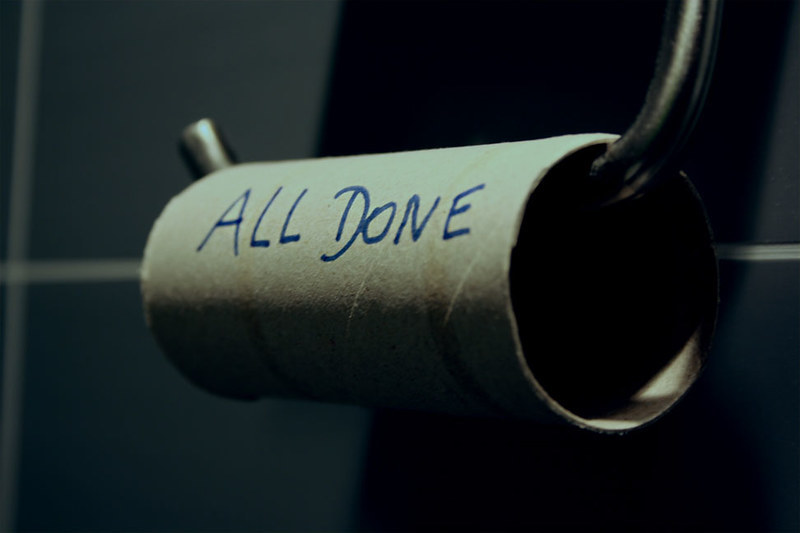
This afternoon, my landlord slipped a note beneath my door. Among other things, it warned us not to flush anything but toilet paper. “With current shortages,” it read, “many may be tempted to flush napkin or paper towels.” It further stated that anyone who was caught doing this would be charged for the cost of possible repairs—which could be delayed due to our current situation.
Which led me to wonder: are people running out of toilet paper, using other items, and screwing up the plumbing systems? Turns out, yes. Yes, they are. In Redding, someone was flushing shredded T-shirts. This caused a backup at a lift station where workers had to quickly prevent a spill.
While not flushing T-shirts seems pretty obvious, not everything you’d think is flushable is. For example, you shouldn’t flush “flushable” wipes. According to a release from California Water Boards:
A majority of urban centers are on centralized sewage collection systems [and] depend on gravity and enough water flow to move along human waste and biodegradable toilet paper. The systems were not designed for individual nylon wipes and paper towels. The wipes and paper towels do not break down like toilet paper, and therefore clog systems very quickly. Wipes are among the leading causes of sewer system backups, impacting sewer system and treatment plant pumps and treatment systems.
So, what can you flush and what should you do if hoarders have prevented you from getting toilet paper?
You can flush:
- Waste that comes out of your body
- Toilet paper
You should not flush:
- Literally anything else, including napkins, paper towels, wipes, rags, socks or T-shirts, sponges, tampons and sanitary napkins, or condoms.
What can you do instead?
- Buy a bidet
- Take a shower
- Use napkins or paper towels, but bag and throw them away instead of flushing
And if you are hoarding toilet paper, please stop. You don’t need to. According to Popular Mechanics, the average person only uses about 100 rolls in a year and there’s no threat to toilet paper supply chains in the U.S. The greater threat would be unsanitary blockages and spillages caused by people who can’t buy toilet paper flushing wipes or other items.
Juliet Bennett Rylah is the Editor in Chief of We Like L.A. Before that, she was a senior editor with LAist and a freelancer for outlets including The Hollywood Reporter, Playboy, Los Angeles Magazine, IGN, Nerdist, Thrillist, Vice, and others.


 Reminder – Only
Reminder – Only  and
and  toilet. Please refrain from flushing
toilet. Please refrain from flushing 

 (@LACitySAN)
(@LACitySAN) 